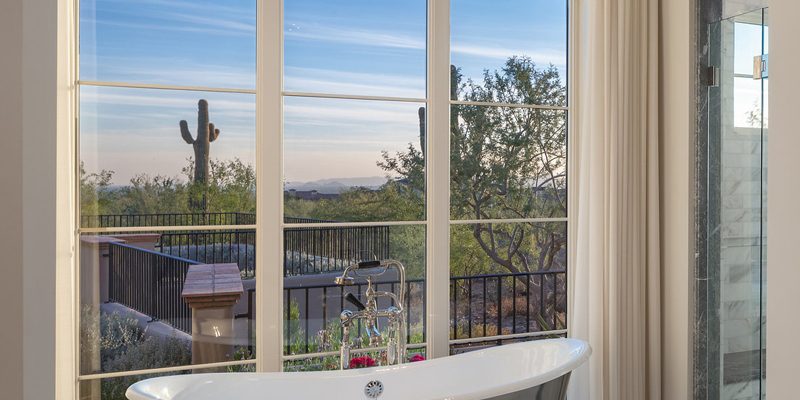Loading ...

Porcelain is a manufactured stone. It is strong and durable. It can easily withstand damage like cracking, chipping, and scratching because it is so hard. It’s also resistant to etching that can impact other natural stone surfaces, dulling their shine and wearing away at the sealant that protects the stone. You can use almost any household cleanser on the surface without fear of damage. Additionally, like marble, granite, and quartzite, porcelain is resistant to heat, cold, and UV rays, making it ideal for indoor and outdoor use. You won’t have to worry about fading or discoloration when choosing porcelain countertops.
Kitchen countertops, office reception areas, bathroom vanities or outdoor bars – the options are limitless for how and where porcelain countertops can be used. Ideal for both indoor and outdoor areas, the countertops are impervious to damage from extreme temperatures, humidity and UV light. The average water absorption for the material is 0.1%, making them frost resistant in any weather condition. And – since Crossville Porcelain Countertops do not contain organic material – they are also resistant to fire.
Why is porcelain stain-resistant?
Though nice to look at, natural stone countertops such as granite and marble are prone to staining. These traditional countertop options are porous, meaning they can absorb liquids that come into contact with them. For someone who loves to cook, this can result in stains from turmeric, berries, and other colorful ingredients. Unlike granite and marble, porcelain slab is non-porous and will not absorb the liquid and bacteria that comes its way. This means that porcelain slab might just be the ultimate surface choice for your kitchen.
Is porcelain hard to clean and maintain?
Porcelain is among the easiest counter surfaces to clean and maintain. Because it is non-porous and incredibly resilient, you can use almost any household cleanser without fear of etching or other harm. In addition, this non-porous surface requires no sealing.
How can I remove stains from porcelain slab?
If you have noticed stains, there’s no question that you’ll want to learn how to remove stains from porcelain countertops. Though the best way to avoid stains is to clean up after every use, sometimes stains happen. To remove stains from porcelain slab countertops, you can try using baking soda, hydrogen peroxide, and a soft cloth to gently work the stain out. Avoid using any products that could scratch your countertops, and try not to scrub too hard. Porcelain kitchen countertops are durable and scratch-resistant, but you’ll still want to avoid causing more harm when cleaning. Sometimes, simple stains may even resolve over time with regular cleaning, so start slow when trying to remove a stain.
Porcelain slab is a fantastic material choice for kitchens due to its beauty, functionality, and ease of cleaning. Always keep in mind that not all porcelain slab is created equally. Be sure to work with an experienced custom porcelain slab fabricator to ensure your porcelain slab surfaces are of the highest quality and installed with precision.
Is porcelain easier to care for than quartzite?
Porcelain slab is a truly wonderful surface material for nearly any area in a home. From porcelain showers to porcelain floors and countertops, porcelain offers superior functionality and beauty without the burden of regular maintenance. Unlike quartzite, porcelain slab does not need to be sealed to prevent damage or staining. Porcelain slab is non-porous, meaning it won’t absorb what you put on it and won’t harbor bacteria. Porcelain is also easy to clean, care for and is ideal for anyone who makes the most out of their space.